By Aurelia Dávila Pratt
How does one distill ten years of sacred space-making into one short article?
And yet, this is exactly what we’ve been doing for over a decade at Peace of Christ Church. Deep in the heart of Central Texas, we have been making sacred space:
space for healing
space for growing
space for community
space for personal evolution
space for collective liberation work
space for reimagining faith
space for holy communion, liturgy, the work of the people!
As a founding pastor, I’ve had the honor of bearing witness from our very first breath of life.
Indeed, what I have learned this last decade is that our becoming as a community is not unlike the becoming of a human life. We are a living, breathing, moving entity who is ever-changing. And we need embodied permission and loving cultivation to do our becoming.
We need space to become. So this is our work: we grant the space needed.
For over ten years, we’ve been figuring things out as we go: Trying new things. Tossing out what doesn’t work. Creating from scratch what is needed to promote our sacred becoming. This collective journey has included a lot of mistakes, painful missteps, and things we’d surely do differently if given the chance.
Yet, even with all our growing pains and evolving, there have been helpful values that have shaped us from the start. These values have grounded us, keeping us tethered to our purpose, offering us clarity and a way forward.
Our roots are strong because they include the liberative truth of Imago Dei, unyielding inclusion and radical love, a non dual posture, and a fierce commitment to good health and authenticity.
Imago Dei. At Peace of Christ, our central theological framework is Imago Dei. We believe every human is made in God’s image. Because of this we are inherently good. What’s more, we are empowered to listen to the Spirit of God within us.
When Imago Dei moves beyond belief and into practice, we are able to love and care for ourselves well. Moreover, once we truly begin to recognize Imago Dei within us, we can no longer ignore the Imago Dei of others.
We must see not only humanity, but also the divinity of other people. Then, we must act accordingly. So our Resurrection work includes this lifelong work of Imago Dei.
Inclusion and radical love. The hands and feet of our Imago Dei belief looks like inclusion and radical love. The Christ we follow led a ministry and doled out teachings with a clear bent toward inclusion. Indeed, Jesus had an explicit agenda: Love over law.
Related, our church’s tagline has long been Think deeply. Love widely. We have permission to think critically about faith and our faith tradition. We are empowered to wrestle with doubt and ask questions. This is not the sign of a weak faith, but a sustainable one.
The more we think for ourselves, the more we consider the implications of Imago Dei outside of any prescriptions or doctrine we’ve been formerly spoonfed. The more we practice Imago Dei, the more God’s love swells up within us.
Our capacity to love widely increases through our willingness to think deeply.
So we think deeply and we love widely. We include and we love! We show active care for the poor, the chronically sick, the politically marginalized and the historically powerless. We concern ourselves with social matters affecting women, Black, Indigenous, and people of color, the queer community, and so on.
We do this because we understand that our liberation is tied up together. Our participation is not simply a part of our faith work. It IS our faith work as Resurrection people.
Non dualism. Following Christ’s radical love-path means a necessary embrace of non dualism. When it comes to matters of faith, spirituality, and love, we must throw out our binaries. We must take up the spiritual practices of nuance, paradox, and mystery via a non dual posture.
This is how we are able to move through such chaotic times with a sense of peace and joy. We understand that we can feel many feelings at once. We can hold many beliefs in tension. We can embrace uncertainty and find solace in mystery.
At Peace, our commitment to such a posture is reflected in all we do: in our programming, in our teachings, in our liturgy. It gives us hope that all is not lost. We do have the ability to build up strong, beautiful faith paradigms that can sustain us in these times.
And because of Imago Dei, we know we deserve this.
Good health. What’s more, we deserve to be well. Though many of us have experienced harm in religious settings, we believe sacred communities can operate in good health. And we are committed to creating that reality among us.
We are interested in healthy bodies and souls, healthy community, healthy theology, and healthy images of God. So we take care of our pastors, we never hold shame or guilt over our volunteers, and we seek to be trauma informed in all our teachings and practices.
An example: For the last 4 years, every first Sunday we pause from all programming to rest. We rest because we are a small community and we recognize the need to prevent burn out in this way. We rest because we are made up of many young families and sometimes Sundays are the only day for families to spend uninterrupted time together.
There are no sacred cows here. Just a desire to be well and to hold everything else lightly. Our willingness to break from tradition is healing. We experience God here in this sacred, healthy space.
Authenticity. We have long been committed to authenticity. We have sought to veer away from comparing ourselves to other churches, from what “should happen” and from any temptation to copy and paste models that are only barriers to our authenticity.
We have sought instead to live fully into our particular realities. We are a small, multi vocational church with our own unique culture, rhythms, movements, circumstances, resources.
So, sometimes we do radical things like cut out services completely every first Sunday in order to rest. We’ve reimagined the concept of home-church, offering it monthly. In turn, we’ve found a way to offer deeper pockets of community while also saving money on rent.
We’ve thrown out programming altogether when it wasn’t serving us well. We brought it back when we felt like it. We follow the energy of our community, and this has served us well.
What I have learned is that all of this has not simply been a survival tactic. Rather, our willingness to be authentic and do what works for us is our superpower. It has informed our continual becoming.
At our ten year celebration service in January 2023, I was given a beautiful visual of this. Every detail of that Sunday morning was such a reflection of us: we threw out the usual order of worship and built something totally different, altogether from scratch.
Friends from all different seasons of the life of our community came back to join us, and we included folks from all different seasons of our church in the program. In fact, almost every single one of our co-founders (including several who live out of state now!) were standing up at the front ten years later reading a poem all of us wrote together.
We infused so much nostalgia, humor, and intention into that day. When considering who would give the sermon: the founding lead pastor, the current lead pastor, someone else? It was a no brainer! We asked Conor, one of our youth, to offer an encore of his incredible youth-led-service sermon (because yes, we have a completely youth-led service every year!)
And let me tell you, it was possibly our best idea to date. In fact, that moment is pinned on our church instagram page (@peacewilco) and I sometimes go back and watch it because it fills me up! Truly, I am so proud of us and the collaborative, playful, healthy community we’ve worked to create.
I know the lifespan of most church plants is short. I won’t make any guarantees of what will become of our community. But the point isn’t what will become. The point is making room to become, right now.
Regardless of what the future holds, I know that right now, we are faithful in our work of sacred space-making.
The deepest wisdom I can offer after ten years of building up a faith community is to allow this becoming to happen. Get out of the way when needed. Set aside fear or the tendency to control as often as possible. With unclenched fists, lean into the paradox of becoming with both a surrender to Spirit flow and a knowing what tethers us to purpose.
To my fellow co-conspirators of Peace: cheers to ten years! May we continue the work of creating, resting, playing, healing. May we continue the beautiful becoming that is Peace of Christ Church. Amen.
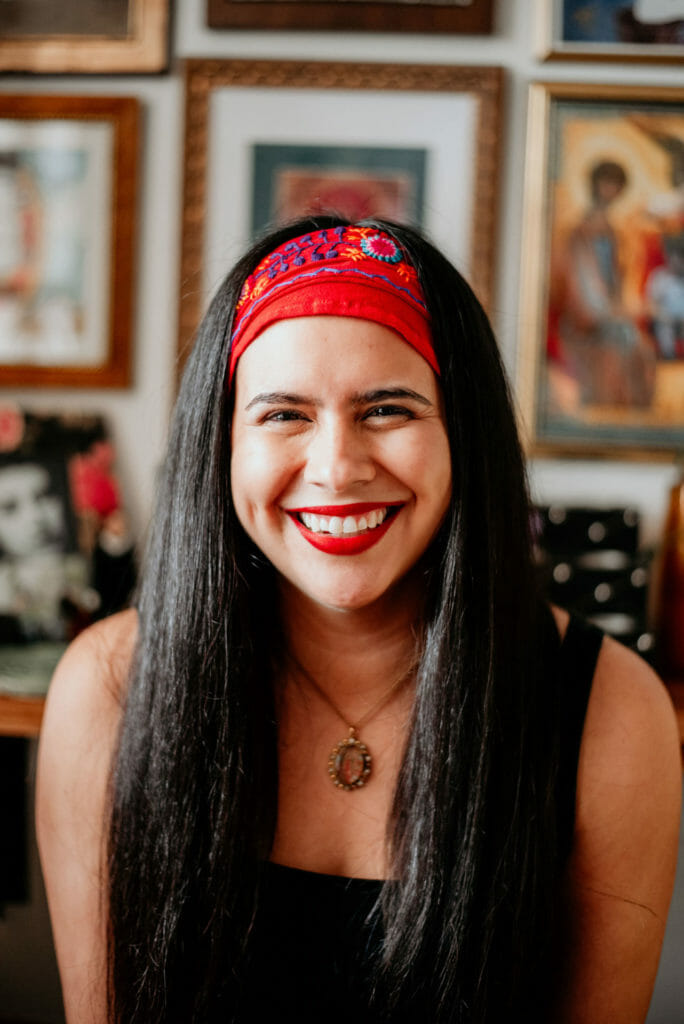
Rev. Aurelia Dávila Pratt is the lead pastor and a cofounder of Peace of Christ Church. She is also the author of A Brown Girl’s Epiphany. Find her on Instagram @revaureliajoy where she is reimagining faith and theology via spoken and written word. A Brown Girl’s Epiphany, is available for purchase wherever books are sold. Learn more at revaureliajoy.com.
Photos courtesy of Chelsa Carr at Crowned by CK Photography.

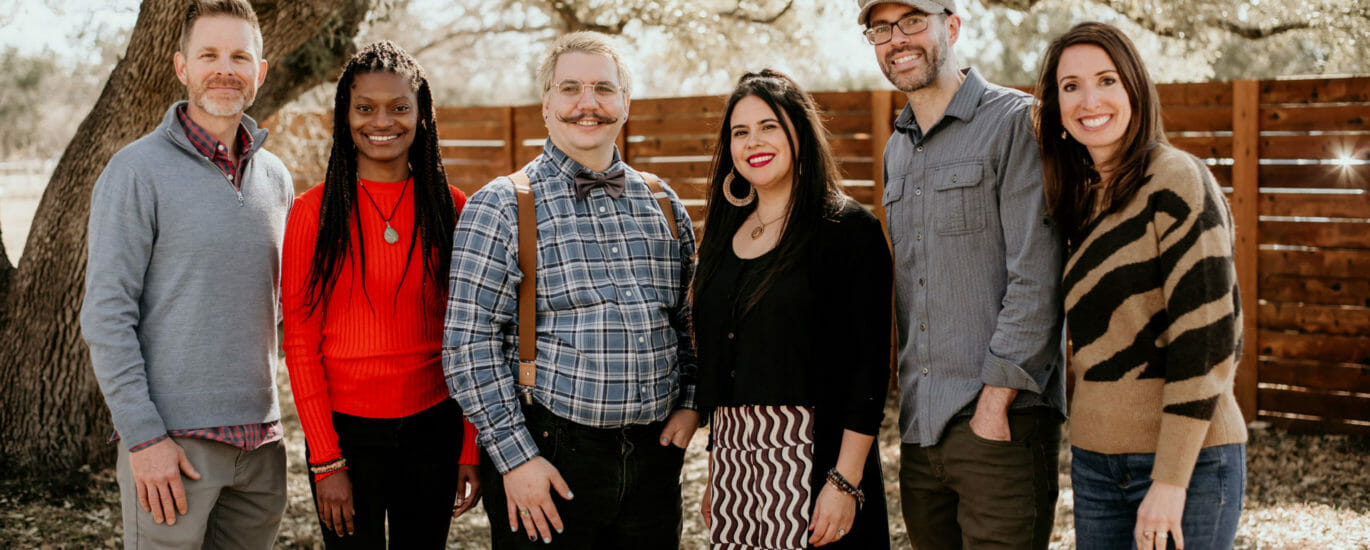
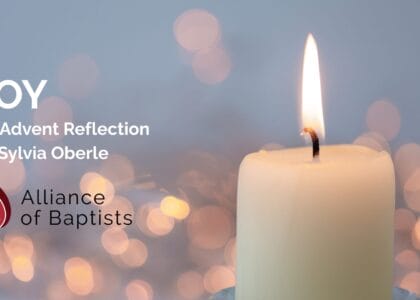
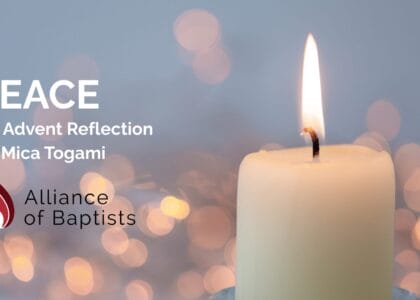
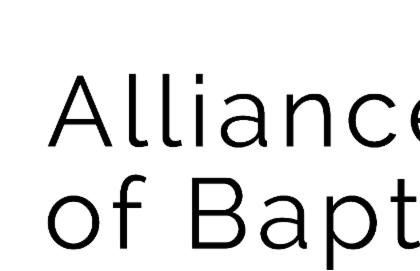
Recent Comments